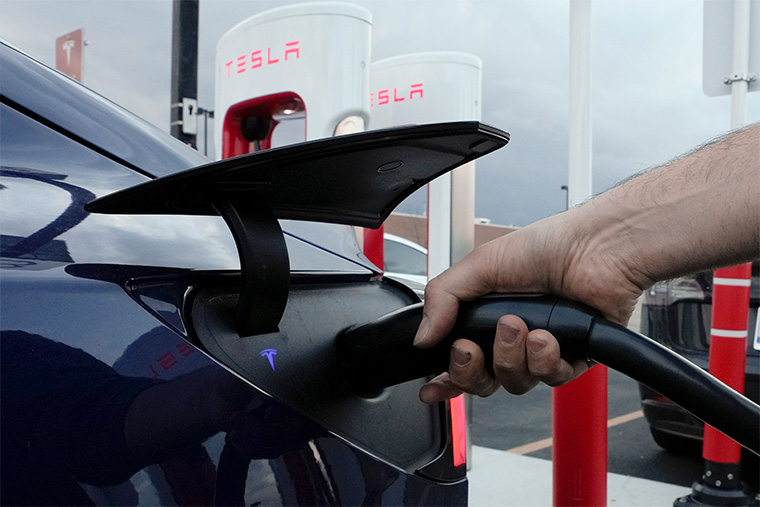GRAND RAPIDS, Mich. /PRNewswire/ — Electric vehicle sales at auto dealerships around the country have dropped by 74% from their 2025 peak following the elimination of the $7,500 Federal tax incentive formalized by the “Big Beautiful Bill” signing. The findings are part of Cloud Theory’s quarterly automotive industry report “On the Horizon” (Q3 2025 On the Horizon).
Electric vehicle sales at retail peaked at 22,997 units for the week from Sept. 22-28 (the last full sales week before the tax incentive elimination). For the week of Oct. 6-12 (the first full week following the tax incentive elimination), EV sales fell to 5,929 units.
Electric vehicle inventories have also plummeted in recent months, dropping from a peak of 196,255 in June to 104,050 on Oct. 12, a 47% drop. General Motors had the highest EV inventory level, with 39,164 EVs remaining, followed by Ford with 21,432 and Hyundai at 14,725. Japanese manufacturers, meanwhile, have very little EV inventory remaining. Nissan has just 419 units remaining, Toyota 435 and Honda has 2,138.
“In the short term, domestic automakers are still sitting on sizeable EV inventory levels, a result of aggressive investment and production ramp-ups that defined their prior philosophies,” said Rick Wainschel, Vice President of Data Science and Analytics for Cloud Theory. “Meanwhile, many foreign OEMs have taken a more cautious approach and have pulled back EV allocations to the U.S. amid policy uncertainty and margin/tariff pressures.”
In other findings:
- Overall vehicle inventory fell to 2.86 million units, down from a past-12 month high of 3.3 million in December 2024.
- Vehicle sales fell to 1.12 million units per month in Q3 2025, down from 1.18 million units per month in Q2 2025.
- Average marketed price for new vehicles was $49,537 in Q3 2025, down from $49,887 in Q2 2024, despite tariff pressures faced by vehicle manufacturers.
“Despite a drop in supply over the past six months, Vehicle Movement has remained remarkably steady, leading to higher Turn Rates,” Wainschel said. “Dramatic price increases related to tariffs have not materialized, which has helped the automotive market stay resilient despite dynamics that have been volatile for much of the past year.”
Tagged with EV





